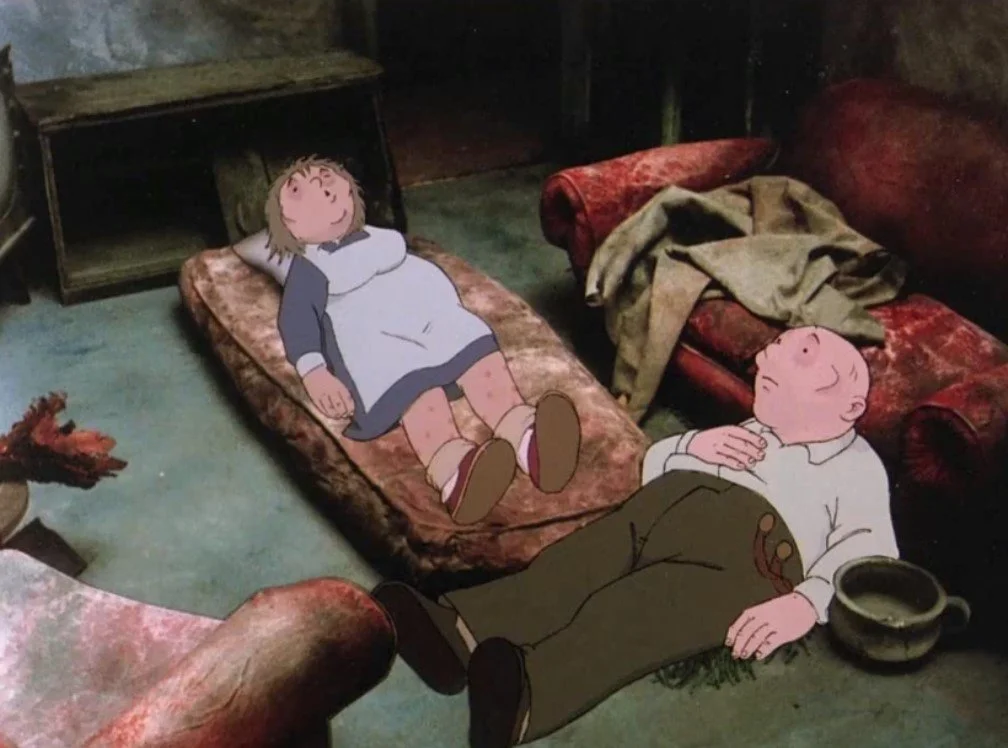The Endless (2017)
This week, we’ve got a Judgment on 2017’s The Endless, a highly ambitious and exceptionally well-crafted film with close attention to character and dialogue, simple but effective visuals, and terror in varieties ranging from the gaslighting of social thrillers to the awe-inspiring doom of cosmic horror. It’s a great film for fans of HP Lovecraft, Stephen King, and other mythology-driven, worldbuilding fiction.
Image Credit: Well Go USA Entertainment
It’s rare for films with ambitious concepts to deliver on their promises. It’s even rarer that they do so within well-crafted stories filled with believable, compelling characters.
Directors Aaron Moorhead and Justin Benson’s 2017 film The Endless conveys its fairly complicated concept in a way that makes enough sense to feel believable, but it also withholds enough explanation to make that same concept feel incomprehensible on a cosmic scale. This partial sequel to 2012’s Resolution manages to do all of that with a very human-level story about the relationship between two brothers as they return to the cult that raised them after their mother’s death and gradually resolve their conflicting memories.
For Aaron Smith (played by Moorhead), the cult was something like a never-ending summer camp. He remembers its members like family and reminisces about singalongs and games and produce so fresh it might have come from the Garden of Eden.
For his older brother Justin (played by Benson), who took Aaron and fled from the group when they were teenagers, the friendly summer camp atmosphere is a veil covering up depravity, delusion, and a plan for mass suicide. He remembers the anger of the camp’s leader-not-leader Hal (Tate Ellington) and the apparent pedophilia of another member of the cult/commune.
Both men are in their twenties when they receive a videotape in the mail from their old culty family. In it, one of the members, Anna (Callie Hernandez) mentions an “ascension.” Justin takes this to mean mass suicide, but Aaron is quick to say he’s certain that’s not what she meant. In fact, he wants to go back and visit. He’s tired of living in poverty and eating ramen noodles and wants to feel the way he felt back when they lived on the commune.
So begins a subtle subversion of the classic social thriller set-up. The protagonists head into an isolated community that at first seems idyllic but grows more bizarre and sinister as time goes on. The film short-circuits the normal plot beats that come out of social thrillers by telling us right off the bat that both characters know they’re dealing with a cult. Even Aaron, who misses the singalongs and fresh corn, admits it.
Although The Endless does a bit of gaslighting at first, the plotline that ends with the classic culty reveal is deflated because we already know about it. For audience members who pay attention to this genre stuff, that’s a pretty neat trick. It leaves you unable to figure out quite where the movie’s going. Everything’s a little off-kilter. Normal genre rules don’t seem to apply—or at least, not the ones you expect.
The reason The Endless can afford to give us that reveal right from the start is that it has a lot more in store for viewers and for its characters. Over its hour and fifty-one minutes, the movie develops into the kind of worldbuilding and mythmaking associated with horror writers like HP Lovecraft and Stephen King (and, as the film seems to point out in one scene, with fantasy writers like JRR Tolkein and CS Lewis too). A whole web of interlocking stories starts to emerge as the film goes on, making its nearly two hours feel highly compressed.
It’s easy to imagine a version of this film approaching three hours or more, full as it is of ancient myth and a unique take on time loop stories—a current obsession of ours. The Endless establishes a deep and fascinating world and mythology with surprisingly little time spent explaining it.
This is thanks, in part, to Benson’s expertly written script. Still, the explanations that come are presented so cleanly that everything feels believable (you know, with the normal suspension of disbelief you’re supposed to give to movies like this). On top of that, the dialogue feels natural, but not in the meandering way that naturalistic dialogue can sometimes come across. Every line is doing work—if not by conveying plot, then by showing important aspects of character.
The film seems to understand cults, communes, and the differences and similarities between the two in a realistic way that other horror films simply don’t. Surprisingly few of the members feel like mere instruments of the cult. Instead, they seem like actual people with their own fears, desires, strengths, and flaws. They feel like individuals wrapped up in their community. At times, that devotion feels wholesome, the way it might on a small commune of folks looking to simplify their lives and live off the land. At other times, it feels more sinister, more group-thinky, more like there’s a hidden agenda. At the same time, it avoids the old tropes associated with cults of the 1960s and ‘70s and favors the more summer camp vibe associated with communes.
The tight storytelling also comes, in part, from Benson and Moorhead’s sparse and minimalistic use of special effects. Many of those effects are little more than tricks of the camera—a ball tossed up and not falling down, the sudden appearance of a trailer or person, a rope ascending into an empty sky. In a time when much of filming happens in front of a greenscreen, it’s refreshing to see clever and inexpensive uses of practical effects. They demand your attention, not because they’re spectacular, but because they’re bizarre, discomforting, and disorienting.
They have a way of revealing plot developments for attentive audiences too. The time loop stuff, for instance, is revealed in all kinds of subtle ways before it’s explained. We say subtle because it’s not the typical Groundhog Day concept where the audience says, “Oh yeah, that guy’s definitely in a time loop and hasn’t figured it out yet.” It’s more complicated and weirder than that.
When the film does use CGI, it favors simplicity over spectacle and mystery over revelation, keeping most of the gore, the monster itself, and the magical whirliwoos (which show up in way too much modern media) out of sight. (Well, except for some ill-advised sparkly effects. We have no clue who thought those were a good idea.)
Dumb sparklies aside, as well as a few questionable uses of shaky camera shots, there’s very little not to like here. On our scale of nothing to nothing because we don’t do scales, The Endless is absolutely worth your time if you like cosmic and Lovecraftian horror, social thrillers, and high-concept films with lots of worldbuilding and mythmaking. Its characters are well-developed, its setting is rich and detailed without getting bogged down in itself, and its concept is both ambitious and well-executed.
What’s more, it’s part of an expansive shared universe that, in addition to Resolution, includes Spring (2014), Synchronic (2019), and most recently, Something in the Dirt (2022), so you’ll have plenty of content to explore afterward when you find yourself hungry for more.








